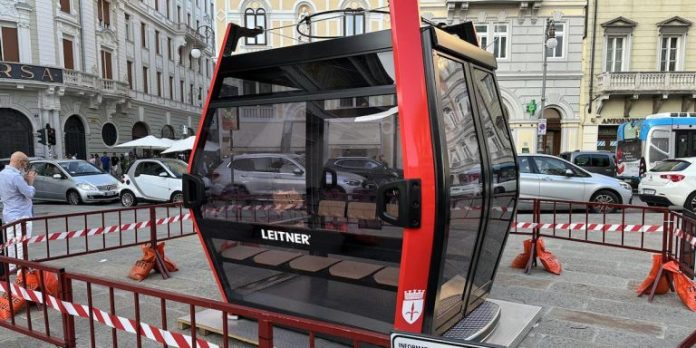by InTrieste
In a significant legal development, the Regional Administrative Court (TAR) has issued rulings regarding the controversial Trieste-Opicina metropolitan cable car project, with implications for both the city’s administration and local opposition groups.
The court declared one of the three appeals against the project inadmissible, specifically the one filed by the Commune of the Municipalities, offering a measure of relief to the municipal administration. However, the two remaining appeals, which contested the regional decree granting permission for the construction and operation of the cable car, remain unresolved. These appeals were filed by different groups, though they share identical claims.
The TAR ruled that the regional government must revisit the concession process, either concluding it under the current conditions or waiting for the Trieste municipal council’s approval of a proposed amendment to the city’s urban planning plan. This ruling suggests that the project may proceed without further legal delays, though the administrative process must be carefully navigated.
In a statement, the Trieste municipal administration expressed satisfaction that one of the appeals had been rejected, emphasizing that the procedural steps could now continue without obstruction. The administration also noted that the remaining appeals would require the regional government to decide how to proceed in light of the court’s recommendation.
On the other hand, opposition groups, led by the “No Ovovia” movement, hailed the decision as a victory. Giulia Massolino, a regional councilor for the Pact for Autonomy-Civica Fvg, called the ruling a “crushing blow” to the city’s infrastructure plans, framing it as a validation of the opposition’s stance on the cable car. Massolino suggested that the ruling, along with the loss of Pnrr funding for the project, highlighted the administration’s failure to adequately engage with community concerns.
Massolino emphasized the importance of public participation, stating that the court’s decision demonstrated the power of collective intelligence in challenging government decisions. She further argued that Trieste residents deserved an administration that earned their trust, focusing on sustainable and meaningful projects for the city’s future rather than “costly displays of power.”
As the legal process continues to unfold, the future of the Trieste-Opicina cable car remains uncertain. Supporters of the project argue that it could improve transportation and bolster tourism, while critics contend it threatens the city’s landscape and resources. With the administrative process still ongoing, all eyes are on the regional government’s next steps.





























